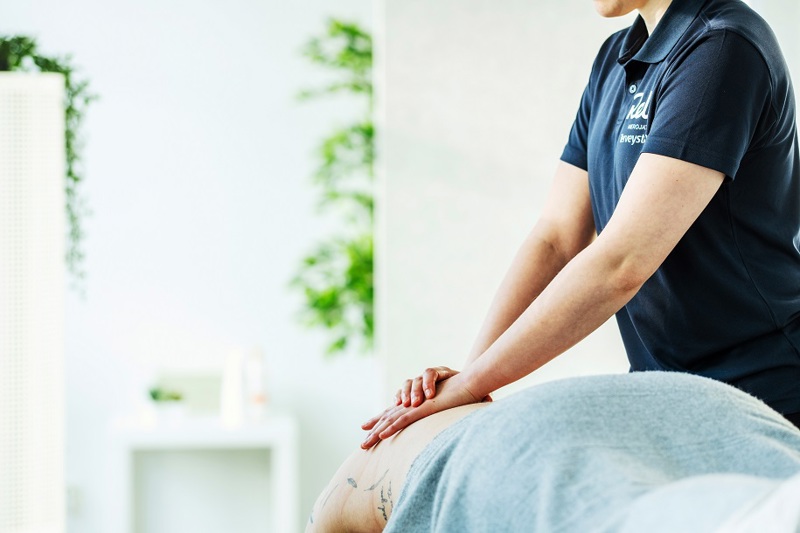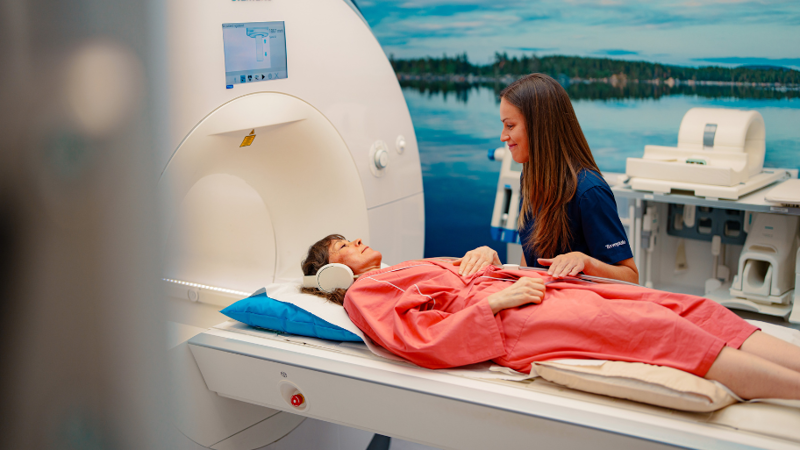The approaching holiday feels stressful – What can help?
The holiday is approaching, but work issues are piling up and there’s conflict in the family about how to spend the time off. Excessive expectations and the pressure to “make the most of it” can cause unnecessary anxiety.

According to occupational health psychologist Annamari Heikkilä, transitions like holidays often stir up a lot of emotions—and even anxiety. Holiday-related anxiety is most common before long summer vacations.
“People often place unrealistic expectations on the holiday. When those expectations don't match reality, disappointment is inevitable,” Heikkilä explains.
Feeling anxious about holidays is also linked to a typically Finnish tendency toward performance-driven behavior, where simply "being" can feel difficult.
“Performance-oriented individuals are more prone to applying the same mindset to their free time—rigid plans and packed schedules. But it's worth asking yourself whether that’s really the best way for you to recover from work,” Heikkilä says.
You shouldn’t think that feelings of anxiety must simply be eliminated, because uncomfortable emotions are part of life. It’s more important to accept those feelings and try to understand what’s behind them.
“Anxiety is a signal that there are expectations. For example, one might hope life would be different from how it’s been over the past year. It's good to pause and reflect: is the anxiety more about holiday expectations or about dissatisfaction with your work?”
A holiday is for rest, not remote work
Work life has become more flexible and fragmented, and it’s especially hard for people in leadership roles to separate work from free time. Still, your own mindset plays a major role in your well-being.
“The idea that everything must be wrapped up before Midsummer is outdated—and in today’s working world, it's simply not possible. It’s worth softening that all-or-nothing thinking, because psychological distress is often tied to black-and-white thinking,” Heikkilä says.
People who can approach work life with flexibility tend not to get overwhelmed by answering an occasional email or call during vacation.
“If work is a meaningful part of your life and gives you energy, briefly thinking about work during your holiday might not be harmful. In fact, relaxing can lead to good ideas—it can be inspiring.”
Heikkilä doesn’t encourage people to work during their holidays, since the primary purpose of time off is to recover.
“It’s important for work communities to agree on respecting each other’s vacations. Before disturbing someone on holiday, ask yourself whether the situation truly requires that specific person’s knowledge or skills. If not, it should be resolved in another way,” Heikkilä emphasizes.
You can’t recover from work stress by just lying around
It’s important to spend your vacation doing things that feel meaningful and bring you joy.
“Some people enjoy making plans in advance, while others benefit more from ditching the clock and calendar altogether. Even during summer vacation, it’s worth thinking about what brings you joy and what activities you can truly focus on.”
Read more occupational health articles

How technology helps relieve mental stress: "When the load is high, the threshold must be low."
Mental health disorders have overtaken musculoskeletal disorders, which had long been the leading cause of sick leave. Work is changing, and the range of sick leave caused by mental health issues has also changed. We must be able to offer new solutions to this challenge.

Extensive data set of 200,000 samples: Nightingale study reveals link between illness risks and sick leave
Data from the Finnish Nightingale study, which is used in Terveystalo's occupational health services, reveals a clear link between lifestyle-related health risks and sick leave. The exceptionally extensive data set of over 200,000 customers shows that people with a low risk of illness had significantly fewer absences, while those in high-risk groups had more absences. The results highlight the importance of preventive healthcare in ensuring work ability and the competitiveness of companies.

Strong identification speeds up your service experience when calling us
Soon you can identify yourself easily and securely before your call is answered. Read below to see how the identification process works.

Terveystalo's digital services have been awarded the internationally recognized ISO27001 information security certification.
Terveystalo's information security practices, processes, and risk management are in line with international best practices.

Does massage help relieve stress? – Touch restores and calms the body and mind
Stress is not always visible on the outside, but the body does show signs when the strain increases. According to Lassi Ylönen, a trained massage therapist at Terveystalo Rela, the body often communicates stress through subtle signs.

Circular economy and artificial intelligence boost performance and improve care
At the heart of sustainable healthcare, technology serves as a tool for improving both the quality of care and accountability. Terveystalo favors solutions that combine sustainability, cost-effectiveness, and medical expertise.